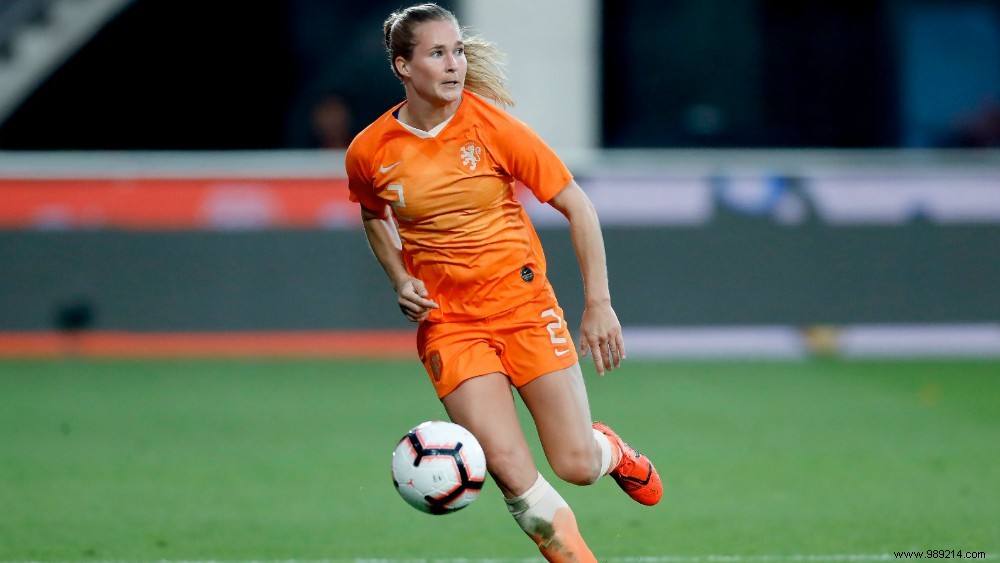
On Wednesday evening, the Dutch women's football team are ready for the semi-final against Sweden. Right back Desiree van Lunteren stands her ground, even though she has Crohn's disease.
“Very few people know that I have Crohn's disease. I don't complain easily and if I do tell, it's hard for outsiders to estimate what it's like. One day it can be very bad, the next day much better. My teammates know it, of course, and luckily I can always go to my roommate and 'buddy' Inessa Kaagman. She notices immediately when I am in pain, because I am a lot quieter than usual.
I think it is a nice and safe feeling that she knows me so well.”
“I grew up in a real football family. My father, my mother and my older brothers all played soccer, so it made sense that I started playing too. My talent was quickly discovered and when I was sixteen I already played for football club AZ and I was in the Orange team under nineteen. Football was my life. But that also meant I had to change my lifestyle. I actually had stomach pains at the time. I went to the doctor a few times. “It must be because you drink so many energy drinks,” she said. Could be.
Some times it went well, other times it went bad. I could not discover to what extent the energy drinks had an influence on this. But when I was eighteen and the complaints continued, I wanted to have it examined more thoroughly. Only after the European Championships, because I was training just as hard for that. But things went wrong at the European Under-19 Championship. During the warm-up for the game against Germany I was in so much pain that I almost crawled across the field, despite the painkillers the team doctor had given me in the locker room. I did play the game in the end; top athletes always want to keep going. But I knew then that something was really wrong with me.”
“Back at home I was examined as quickly as possible and it turned out that everything was indeed wrong. My intestines were full
inflammation. "Desiree, you have Crohn's disease," I was told that day. I didn't realize at the time what that would mean for the rest of my life. I reacted quite calmly, took the patient folders and went home with my parents. My team doctor – I had already made the switch to Telstar – was shocked when I emailed her the outcome of the study. I myself still had no idea at the time of the seriousness of this disease, I was a bit resigned to it.”
Do you want to know how Desiree is coping with her illness and what this means for her career as a professional football player? The interview appeared in the May issue of Santé. Did you miss it? You can still order it via our shop!